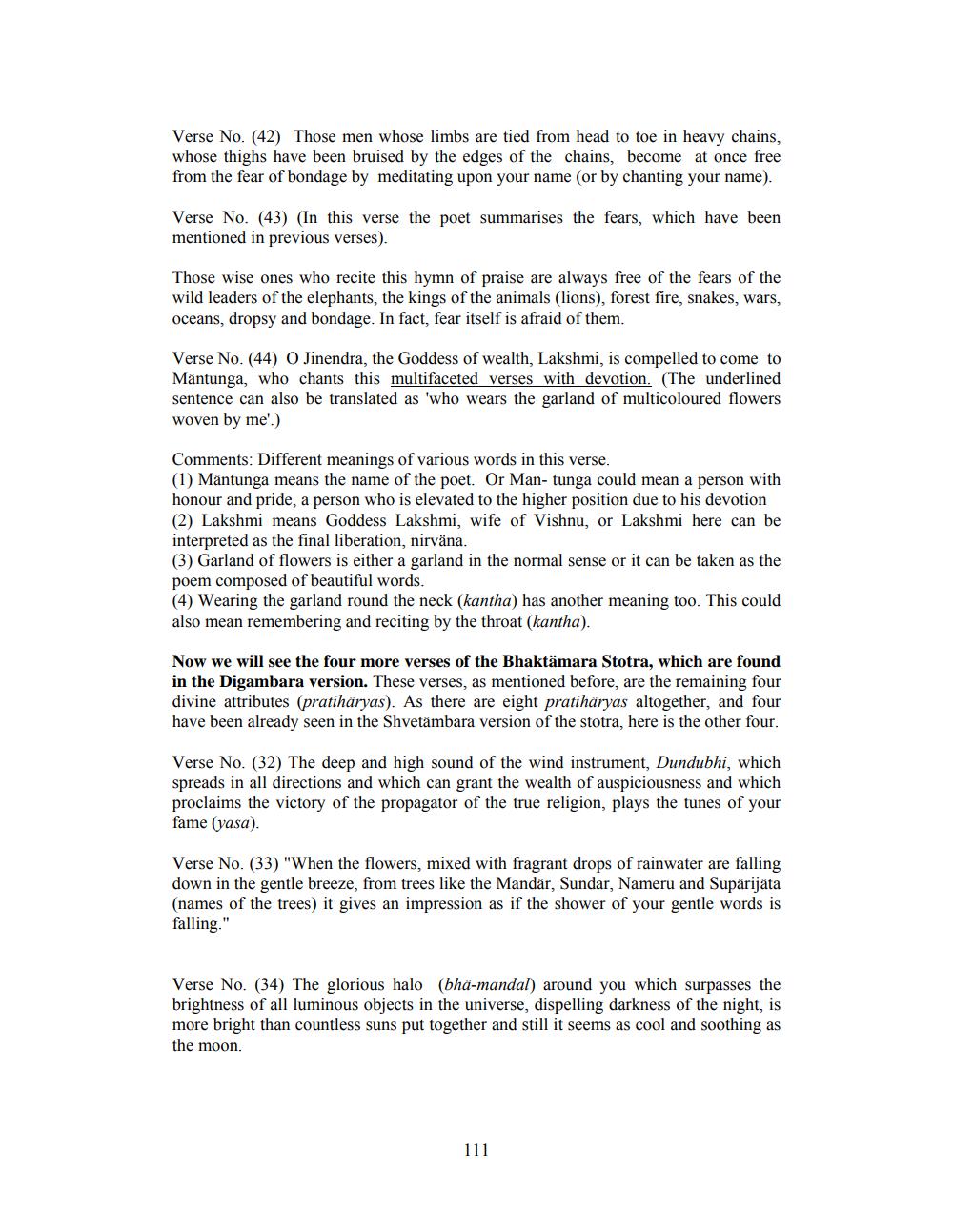________________
Verse No. (42) Those men whose limbs are tied from head to toe in heavy chains, whose thighs have been bruised by the edges of the chains, become at once free from the fear of bondage by meditating upon your name (or by chanting your name).
Verse No. (43) (In this verse the poet summarises the fears, which have been mentioned in previous verses).
Those wise ones who recite this hymn of praise are always free of the fears of the wild leaders of the elephants, the kings of the animals (lions), forest fire, snakes, wars, oceans, dropsy and bondage. In fact, fear itself is afraid of them.
Verse No.(44) O Jinendra, the Goddess of wealth, Lakshmi, is compelled to come to Mäntunga, who chants this multifaceted verses with devotion. (The underlined sentence can also be translated as 'who wears the garland of multicoloured flowers woven by me'.)
Comments: Different meanings of various words in this verse. (1) Mäntunga means the name of the poet. Or Man- tunga could mean a person with honour and pride, a person who is elevated to the higher position due to his devotion (2) Lakshmi means Goddess Lakshmi, wife of Vishnu, or Lakshmi here can be interpreted as the final liberation, nirväna. (3) Garland of flowers is either a garland in the normal sense or it can be taken as the poem composed of beautiful words. (4) Wearing the garland round the neck (kantha) has another meaning too. This could also mean remembering and reciting by the throat (kantha).
Now we will see the four more verses of the Bhaktämara Stotra, which are found in the Digambara version. These verses, as mentioned before, are the remaining four divine attributes (pratihäryas). As there are eight pratihäryas altogether, and four have been already seen in the Shvetämbara version of the stotra, here is the other four.
Verse No. (32) The deep and high sound of the wind instrument, Dundubhi, which spreads in all directions and which can grant the wealth of auspiciousness and which proclaims the victory of the propagator of the true religion, plays the tunes of your fame (yasa).
Verse No. (33) "When the flowers, mixed with fragrant drops of rainwater are falling down in the gentle breeze, from trees like the Mandär, Sundar, Nameru and Supärijäta (names of the trees) it gives an impression as if the shower of your gentle words is falling."
Verse No. (34) The glorious halo (bhä-mandal) around you which surpasses the brightness of all luminous objects in the universe, dispelling darkness of the night, is more bright than countless suns put together and still it seems as cool and soothing as the moon.
111




